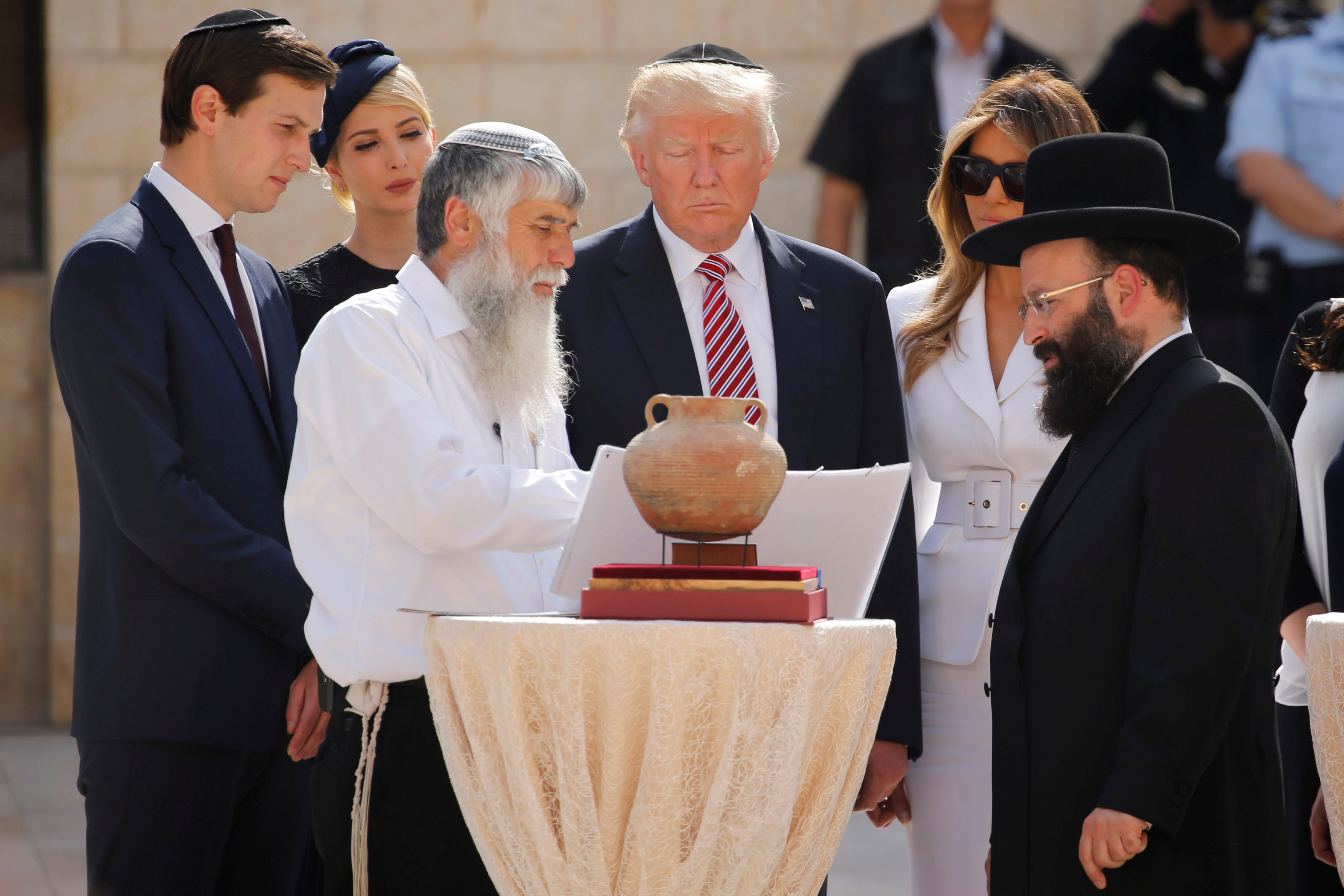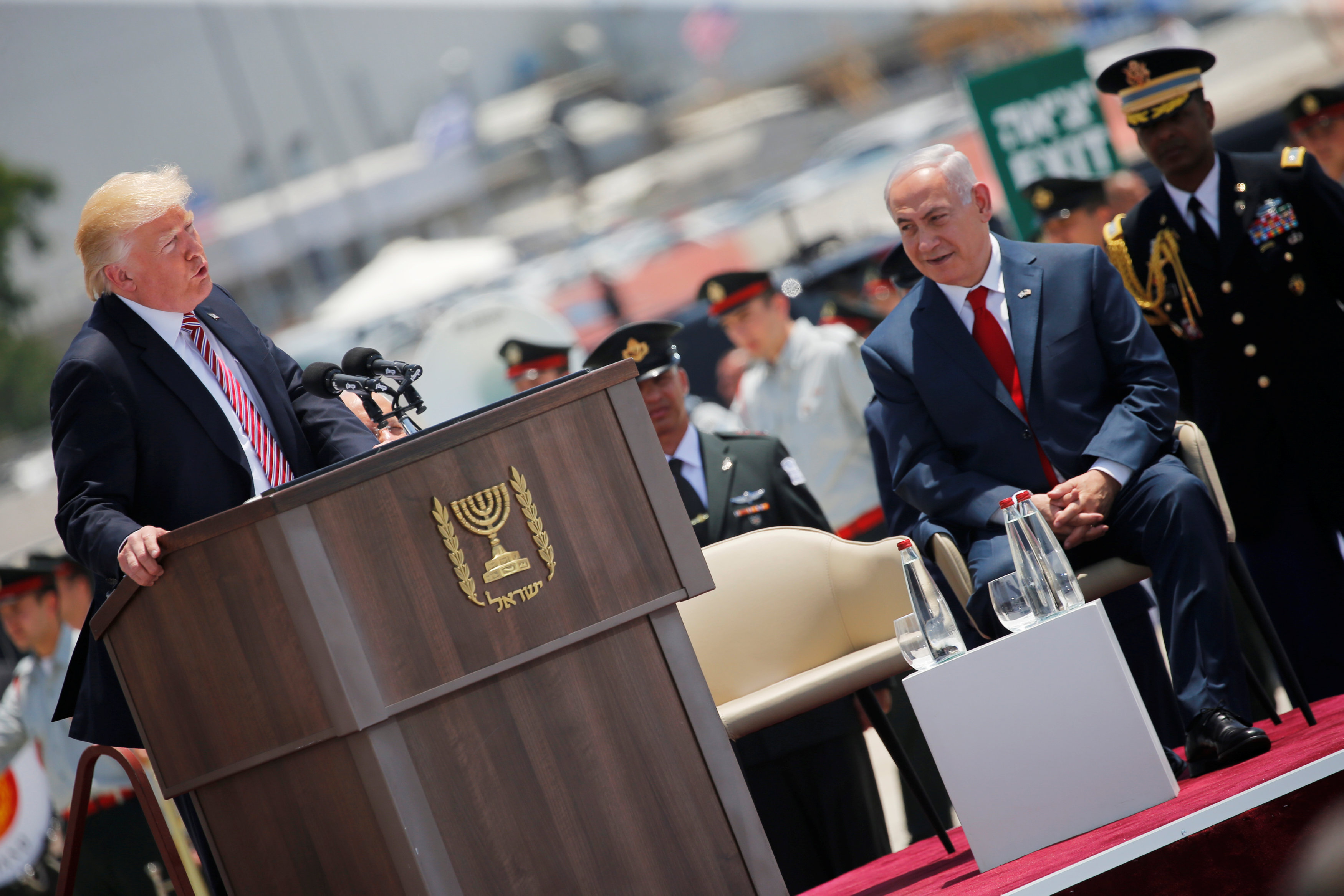
By Steve Holland, Matt Spetalnick and Christine Kim
SEOUL (Reuters) – President Donald Trump on Tuesday warned North Korea he was prepared to use the full range of U.S. military power to stop any attack, but in a more conciliatory appeal than ever before he urged Pyongyang to “make a deal” to end the nuclear standoff.
Speaking on North Korea’s doorstep during a visit to Seoul, Trump said that while “we hope to God” not to have to resort to the use of full U.S. military might, he was ready to do whatever was necessary to prevent the “North Korean dictator” from threatening millions of lives.
“We cannot allow North Korea to threaten all that we have built,” Trump said after talks with South Korean President Moon Jae-in, who has supported diplomatic outreach to Pyongyang.
But at times taking a more measured, less confrontational tone, Trump also urged North Korea to “do the right thing” and added that: “I do see some movement,” though he declined to elaborate.
“It really makes sense for North Korea to come to the table and make a deal,” Trump told reporters at a joint news conference with Moon.
Despite Trump’s renewed threats against North Korea, it was a far cry from the more strident approach he has pursued in recent months, including his previous dismissal of any diplomatic efforts with Pyongyang as a waste of time.
North Korean leader Kim Jong Un has made clear, however, that he has little interest in negotiations, at least until he has developed a nuclear-tipped missile capable of hitting the U.S. mainland.
Landing earlier at Osan Air Base outside Seoul, the president and First Lady Melania Trump stepped down from Air Force One onto a red carpet as he began a 24-hour visit that could aggravate tension with North Korea.
He then flew by helicopter to Camp Humphreys, the largest U.S. military base in the country, and met U.S. and South Korean troops, along with Moon.
The White House billed Trump’s trip as intended to demonstrate U.S. resolve over a hardline approach to the North Korean nuclear and missile threats.
But many in the region had expressed fear that any further bellicose rhetoric by Trump toward Pyongyang could increase the potential for a devastating military conflict.
TRUMP PRAISE FOR MOON
Trump praised Moon for “great cooperation” despite differences in the past over how to confront North Korea and over a trade pact between the United States and South Korea.
At the news conference, the leaders said they had agreed to renegotiate the trade agreement in a timely fashion.
In formal talks after an elaborate welcoming ceremony outside the presidential Blue House in Seoul, Moon told Trump he hoped his visit would relieve some of South Koreans’ anxiety over North Korea.
Pyongyang’s recent nuclear and missile tests in defiance of U.N. resolutions and an exchange of insults between Trump and Kim have raised the stakes in the most critical international challenge of Trump’s presidency.
At the news conference, Trump said Pyongyang must understand the “unparalleled strength” that Washington had at its disposal.
He cited three U.S. aircraft carrier strike groups that are converging on the Western Pacific for exercises as well as a nuclear submarine he said was also in position.
Trump has rattled some U.S. allies with his vow to “totally destroy” North Korea if it threatens the United States and by deriding Kim as a “Rocket Man on a suicide mission.”
Kim responded by calling Trump a “mentally deranged U.S. dotard.”
Trump’s senior aides privately have since urged him to avoid “personalizing” the conflict any further, U.S. officials say.
On the second leg of his five-nation trip, Trump toured the sprawling Camp Humphreys garrison, which lies about 100 km (60 miles) from the border with reclusive North Korea, and met commanders and troops.
The base visit gave him a first-hand view of the massive military assets the United States has in place in South Korea, but it also could serve as a reminder of the cost in U.S. military lives – as well as the potential massive South Korean civilian losses – if the current crisis spirals into war.
“MAY YOUR DREAMS COME TRUE”
Trump wrapped up his first day with a dinner hosted at the Blue House, dining on grilled sole, beef ribs and chocolate cake while being serenaded by a K-pop singer with an orchestra in the background.
“Mr President, may your dreams come true,” Trump said to Moon, raising his glass in a toast.
North Korea has not conducted a missile test for 53 days, the longest such lull in testing this year. North Korean state media has not commented on Trump’s arrival in the South.
South Korea’s spy agency said last week that North Korea may be preparing another missile test, raising speculation that such a launch could be timed for Trump’s trip to the region.
U.S. officials have said privately that intercepting a test missile is among options under consideration, though there is disagreement within the administration about the risks.
Trump had previously criticized Moon over his support for diplomatic engagement with Pyongyang – something the U.S. president once called “appeasement” – but both leaders used Tuesday’s news conference to stress common ground.
Moon urged maximum pressure from sanctions against North Korea to force it to negotiate abandonment of its nuclear program, something Pyongyang says it will never give up.
Several hundred supporters and protesters lined the streets of downtown Seoul as Trump’s motorcade passed by en route to the Blue House, waving flags and posters, with some saying, “No Trump, No War, Yes Peace,” while others cheered, “Trump! Trump!”
will deliver a speech on Wednesday to South Korea’s National Assembly expected to focus heavily on his North Korea policy, which has stressed sanctions and military pressure instead of diplomatic engagement with Pyongyang.
The North accuses the United States, which has 28,500 troops in South Korea, a legacy of the 1950-53 Korean war, of planning to invade and regularly threatens to destroy it and its Asian allies. Washington denies any such intention.
(Additional reporting by Soyoung Kim, James Pearson, Josh Smith and Hyonhee Shin in Seoul, Phil Stewart and Idrees Ali in Washington; writing by Matt Spetalnick; Editing by Clarence Fernandez and Nick Macfie)










